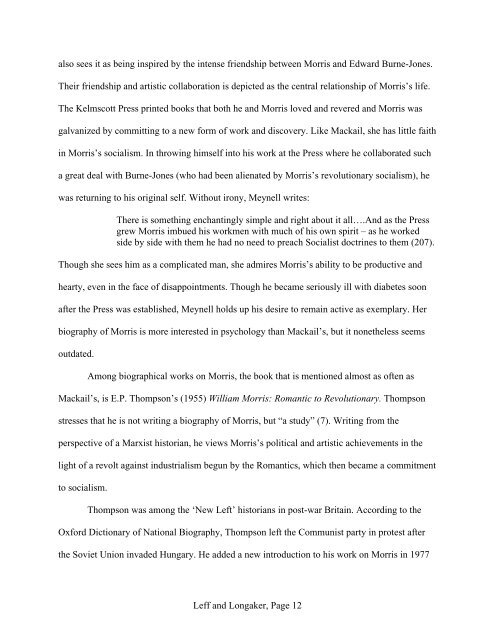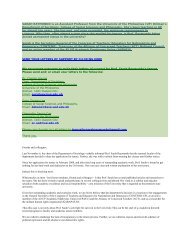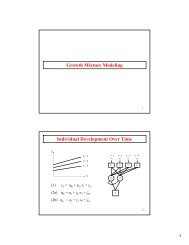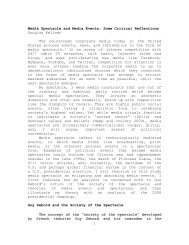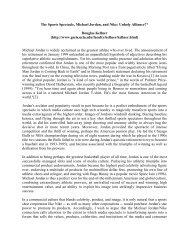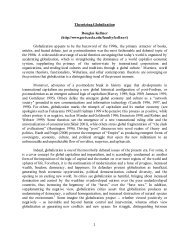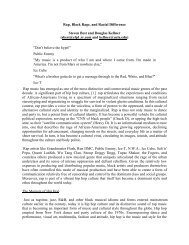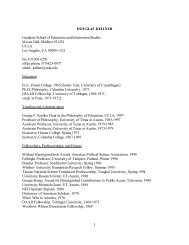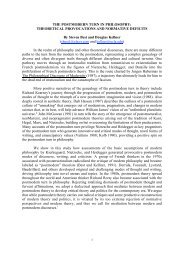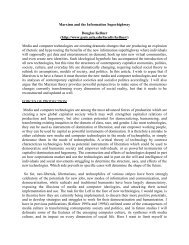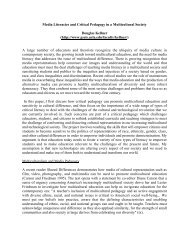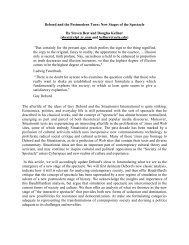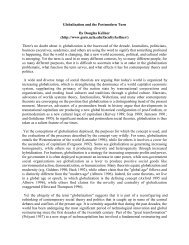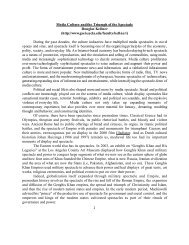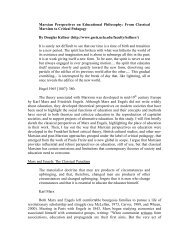Rachel Leff and Rachel Longaker IS281 Professor Maack ... - Ucla
Rachel Leff and Rachel Longaker IS281 Professor Maack ... - Ucla
Rachel Leff and Rachel Longaker IS281 Professor Maack ... - Ucla
Create successful ePaper yourself
Turn your PDF publications into a flip-book with our unique Google optimized e-Paper software.
also sees it as being inspired by the intense friendship between Morris <strong>and</strong> Edward Burne-Jones.<br />
Their friendship <strong>and</strong> artistic collaboration is depicted as the central relationship of Morris’s life.<br />
The Kelmscott Press printed books that both he <strong>and</strong> Morris loved <strong>and</strong> revered <strong>and</strong> Morris was<br />
galvanized by committing to a new form of work <strong>and</strong> discovery. Like Mackail, she has little faith<br />
in Morris’s socialism. In throwing himself into his work at the Press where he collaborated such<br />
a great deal with Burne-Jones (who had been alienated by Morris’s revolutionary socialism), he<br />
was returning to his original self. Without irony, Meynell writes:<br />
There is something enchantingly simple <strong>and</strong> right about it all….And as the Press<br />
grew Morris imbued his workmen with much of his own spirit – as he worked<br />
side by side with them he had no need to preach Socialist doctrines to them (207).<br />
Though she sees him as a complicated man, she admires Morris’s ability to be productive <strong>and</strong><br />
hearty, even in the face of disappointments. Though he became seriously ill with diabetes soon<br />
after the Press was established, Meynell holds up his desire to remain active as exemplary. Her<br />
biography of Morris is more interested in psychology than Mackail’s, but it nonetheless seems<br />
outdated.<br />
Among biographical works on Morris, the book that is mentioned almost as often as<br />
Mackail’s, is E.P. Thompson’s (1955) William Morris: Romantic to Revolutionary. Thompson<br />
stresses that he is not writing a biography of Morris, but “a study” (7). Writing from the<br />
perspective of a Marxist historian, he views Morris’s political <strong>and</strong> artistic achievements in the<br />
light of a revolt against industrialism begun by the Romantics, which then became a commitment<br />
to socialism.<br />
Thompson was among the ‘New Left’ historians in post-war Britain. According to the<br />
Oxford Dictionary of National Biography, Thompson left the Communist party in protest after<br />
the Soviet Union invaded Hungary. He added a new introduction to his work on Morris in 1977<br />
<strong>Leff</strong> <strong>and</strong> <strong>Longaker</strong>, Page 12


